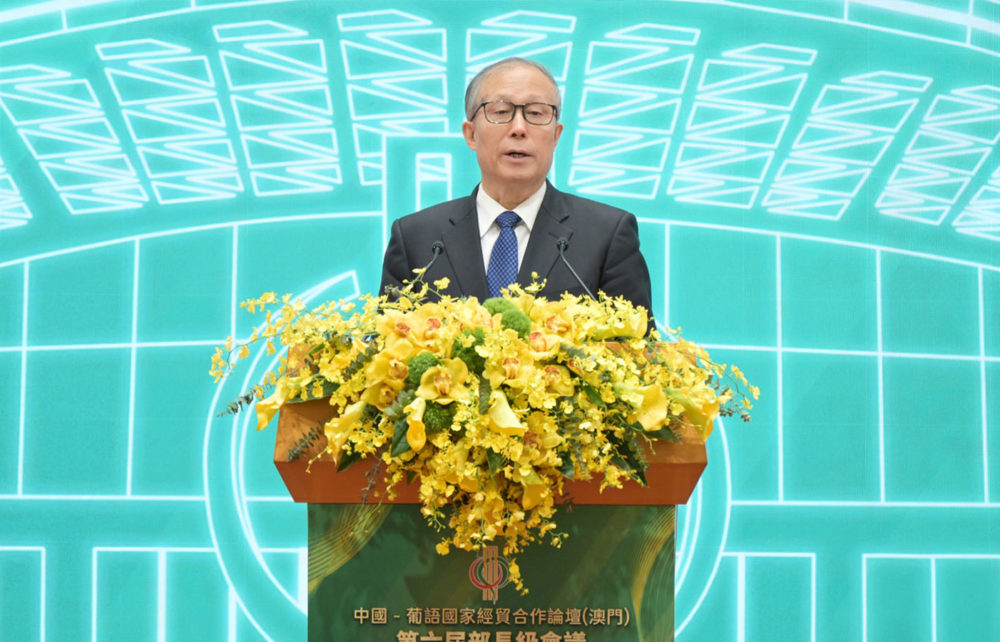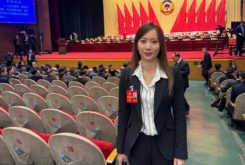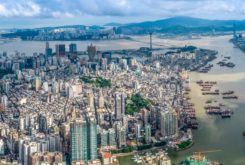The 6th Forum Macau Ministerial Conference ended Monday in Macao with the announcement of four new economic and trade key areas included in the three-year (2024-2027) Action Plan for Economic and Trade Cooperation between China and the Portuguese-speaking countries (PSCs).
China’s Minister of Commerce Wang Wentao said in the opening of the conference that the previous ministerial meetings had enabled the development of new ideas to make new plans for future cooperation. With language and culture as the link, economic and trade cooperation as the theme and common development as the goal, the membership has expanded to include all the nine countries in the world where Portuguese is the official language by 2022.
Ji Xianzheng, Secretary-General of the Permanent Secretariat of Forum Macau said at the end of the meeting that the four main areas to be developed between China and the Portuguese-speaking countries include the steady promotion of cooperation in traditional areas, with special reference to medical and health care and environmental protection, as well as support for the development of Portuguese-speaking countries in Asia and Africa; and the deepening the potential of cooperation in new areas, promoting the establishment of the Blue Partnership between China and Portuguese-speaking countries, and strengthening cooperation in addressing climate change.
A third new area to be developed is to wmphasise the new opportunities for Macao’s platform building under the new format, proposing to support the Region to take advantage of its position as the central city of the Greater Bay Area, to promote economic and trade ties between China and Portuguese-speaking countries; the fourth is to strengthen Macao’s position as a platform for trade and investment, financial cooperation, cultural exchanges, training of human resources and regional cooperation, among other areas
The conference clarifies the key areas of economic and trade cooperation between China and Portuguese-speaking countries in the next three years and reinforces Macao’s role as a commercial and trade service platform.
Forum Macao was founded in Macao in October 2003, hosted by the central government of China (Ministry of Commerce), and undertaken by the government of the Macao Special Administrative Region. Nine Portuguese-speaking countries, including Angola, Brazil, Cabo Verde, Guinea-Bissau, Equatorial Guinea, Mozambique, Portugal, São Tome and Príncipe, and Timor-Leste, joined the forum.
Forum Macao Estimates USD 500 Million Invested in Cooperative Projects
The nine Portuguese-speaking countries have a population of 290 million, about 200 million of them in Latin America’s economic powerhouse Brazil. Forum Macao’s 10 member states (Nine Portuguese-speaking countries plus China) account for around one-fifth of the world population.
Since its establishment of the forum, five ministerial conferences and a special ministerial conference have been held to promote intergovernmental cooperation between China and PSCs in various fields, including trade and investment, industry, human resources, medical and health care, as well as education and cultural affairs.
During a reception on Sunday Macao’sChief Executive Ho Iat Seng praised the Macao-based Forum for Economic and Trade Cooperation between China and Portuguese-speaking Countries, also known as Forum Macao, for its “efficient cooperation mechanism” and its role as a “good service platform” that has been playing an important role in strengthening economic and trade cooperation and cultural exchanges between China and Portuguese-speaking countries.
Macao Chief Executive Wants Portuguese Investment in Health Sector
Ho also stressed that, apart from its role as a platform between China and Portuguese-speaking countries, Macao will continue to participate in and support the development of the Belt and Road Initiative (BRI) and promote the high-quality development of the Guangdong-Hong Kong-Macao Greater Bay Area (GBA) and the Guangdong-Macao In-depth Cooperation Zone in Hengqin.
Portugal’s economy minister told Lusa on Monday that the country would like to be included in the group benefiting from a visa exemption to enter China and that this has been communicated to Beijing. “Portugal has signalled this matter, that we would very much like to be included in the group of countries” with the exemption, Pedro Reis told Lusa in Macau, where he is representing Portugal at the 6th ministerial conference of the Forum for Economic and Trade Cooperation between China and Portuguese-speaking countries, known as Forum Macau.
In March, the Chinese government extended its visa-free policy for stays of up to 15 days to six European countries – Switzerland, Ireland, Hungary, Austria, Belgium and Luxembourg – after initially adopting the same measure for Germany, Spain, France, Italy and the Netherlands at the end of last year. The measure placed Portugal among the few Western European countries whose nationals do not benefit from the exemption to enter the territory of the world’s second-largest economy.




